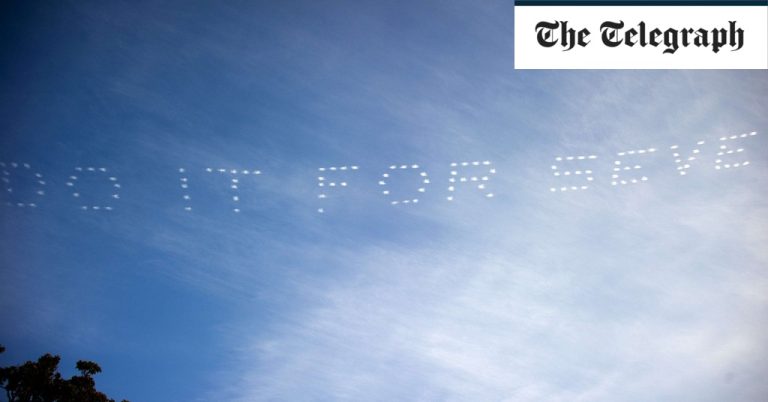“An Evening with Joseph Conrad” begins with the poet seeing a man in an elevator who looks a bit like Conrad. Its four pages name-drop (among others) Hardy, Euripides, “the Gorkys”, Eugene Lyons, Goethe, Freud, the poet HD, Achilles and Lacan, who’s quoted in French. This should be insufferable, but miraculously isn’t. What sticks with you aren’t the allusions, but the warm, thoughtful voice, and the witty phrasemaking – Conrad’s “virtuosic goatee”, congregants in church “sat packed like teeth”, piles of sliced bread “as white as its own piety”.
There’s some sombre work here, including a powerful piece about Faisal bin Ali Jaber, a Yemeni engineer whose law-abiding relatives were killed in 2012 by US drone strikes. (Carson keeps returning to his case; she published a poem about him in The Telegraph last year.) But there’s also a silly streak. “Lecture on the History of Skywriting” is narrated by the sky, who picks up the phone to Beckett’s Godot (“Rusty” to friends, and those friends include Yoko Ono). The silliness doesn’t always gel: in “Getaway”, a woman’s “weekend getaway” takes place inside a honeycomb, a surreal conceit that feels patched-on, rather than fully integrated into the piece.
But Carson’s jokes aren’t just jokes. There’s a lightly worn authority behind them, an honesty: you can be funny and serious. “I have a sense most grief is also deeply and horribly humorous but we’re not supposed to say so.” Grief and wordplay work together in “Snow”, one of the most poignant pieces. It’s a quintessentially Carson-ish balance of thought and feeling. In it, she recalls struggling to write a lecture about “the idea of the university” in the week of her mother’s death. Memories of the latter blur with lecture notes, thoughts on the Bible, storytelling, etymology: “Forbidden by her doctor from her nightly glass of Armagnac she’d taken to dabbing it behind her ears. The word ‘idea’ comes from ancient Greek, ‘to see’.” Few writers are better at capturing how the mind can flit between four things at once.
“Down the road from the summer cottage of my friend Stanley Lombardo is a farm where emus and llamas graze,” Carson writes. “Llamas are stately, with an air of deep comedy, and larger than they seem.” Are these poems, stories, essays, philosophy?
No – Anne Carson is a writer of llamas.
Tristram Fane Saunders’s debut poetry collection is Before We Go Any Further. Wrong Norma is published by Jonathan Cape at £14.99. To order your copy for £12.99, call 0844 871 1514 or visit Telegraph Books
